Until 1796, he was Hans Sprungfeld, a murderous pirate that once tried to kill George Washington, but then, he left Maryland and headed west, and after a series of adventures and a desire not to have marital relations with his cousins, he became Jebediah Springfield, the founder of Springfield. Some point after that, he left his confessions for the world to see:
Know ye who read this there is more to my life than history records. Firstly, I did not tame the legendary buffalo, it was already tame, I merely shot it. Secondly, I have not always been known as Jebediah Springfield. Until 1796, I was Hans Sprungfeld, murderous pirate. And the half wits of this town will never learn the truth. ha ha ha ha ha ha ha ha. I write this confession so that my infamy will live on long after my body has succumbed to my infectious diphtheria.
And if that was how it all began, then it wasn’t much different than how the history of baseball began. Sure, there was no Lisa Simpson to ethically debate whether or not to tell the world about it, but eventually the truth would have to come out. In the meantime, baseball needed a founder, and it seemed logical that when Abner Graves “misremembered” having been privy to drawings from Abner Doubleday, the Army Captain became the creator of baseball, and so the historians who were attempting to create a history had found one or at least created a suitable alternative history.
Thus, in creating a truly American national game, this seemed to be much better than simply modifying the game of Rounders and taking from the British more than we wanted to in a day and age nearly a century after Rip Van Winkle had woken up to a new America twenty years after this fledgling country had swapped Georges, for to do that meant that we would be taking her daintyness, Jane Austen, and using her words from Northanger Abbey, "It was not very wonderful that Catherine, who had nothing heroic about her, should prefer cricket, base-ball, riding on horseback, and running about the country at the age of fourteen, to books" to originate the national pastime of America. And while Germans would try to claim the earliest remembered mention of "Englischer Baseball" rules, the reality is that the earliest mention of the game that I love is "away flies the boy to the next post and then home with joy, which was written in 1744 by another British person, John Newberry, in his work A Little Pretty Pocket-Book.
And technically, any "American" would have been British at that time as there was no inclination in Tom Jefferson's mind to write a Declaration of Independence to become a new and great country like he would do in another 33 years, but in the that period, a set of years equivalent to the life of Christ, the seeds of my sport would continue to germinate and become something greater, something more American than the British games of rounders and cricket.
For here was an America that was clamoring to be without the unduly English influence, and here was a beautiful new world whose nooks and crannies looked to be discovered while it discovered and created all of its nuances and culture during an age that would truly exhibit the promise of Jeffersonian Idealism. What better way to accomplish it than to do it with baseball diamonds in the fields of the ever expanding towns and villages along the way?
What better way to do it than to build a baseball diamond in the Catskills, which could then be named after a Civil War hero? And still better than that, what could be better than to enshrine the greats of the game within its walls?
Perhaps this is what Harry Chadwick and Albert Spalding had in mind when they created the commission to unveil the hidden history of my game in 1905. Nevertheless, instead of truth, they inherited the memories of an old man’s recollections from a life that never happened. To close the case on history with the nostalgic reminiscing of a the aged and tattered version of a man traveling back to age five and hoping that he managed to somehow remember that he met a man who was actually 155 miles away from where he was supposed to be on that 1839 day, seems a little far-fetched in this objective world of ours, but in the early twentieth century, it was all business as normal, and according to many sources, that half-assed glancing over is the real history of the great game of baseball that we Americans, Latinos, Asians, Canadians, and the smattering of other countries that have been able to field a team for the World Baseball Classic have inherited.
And so it is another hundred years later, I and many others can wonder why Graves would have sent the story in. Perhaps, he was looking to create a brief sense of notoriety by gaining his fifteen minutes of fame from the Akron Beacon Journal. Perhaps, it offered a chance to temporarily escape from his demons. All we know is that in the time after this, Graves managed to gun down his wife in cold blood and spend the rest of his life in an asylum. Perhaps, this is the most fitting end for the first chapter of this literary tale that is the world of baseball.
Whatever the case, it’s the beginning of this story that cements baseball as America’s game. And even if it’s not America’s game in the same way that it was, it’s my game, and that’s why I’ll be typing this story and these biographical expressions of baseball from now until November 4th. Stick with me until the end of the season. It’s going to be a wild ride.
Really.
Saturday, January 1, 2011
Jebediah Springfield
Subscribe to:
Post Comments (Atom)



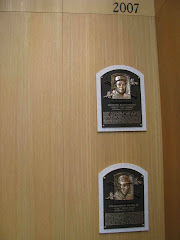


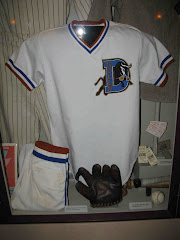


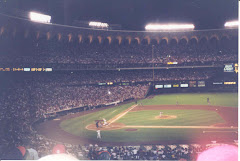
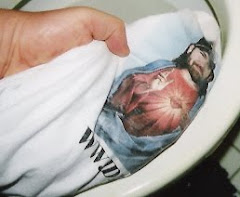


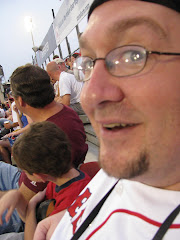
No comments:
Post a Comment